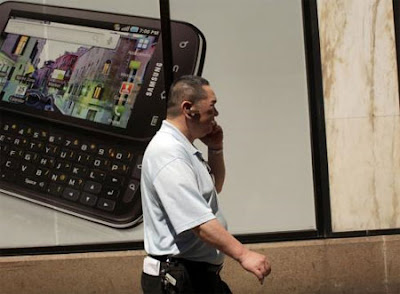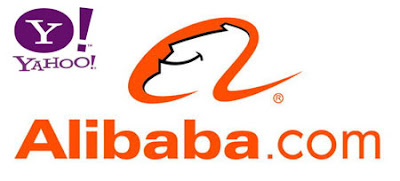Associated Press
by JOELLE TESSLER and MICHAEL LIEDTKE
June 24, 2011
SAN FRANCISCO (AP) - Google may be entering a make-or-break phase in its colorful history now that U.S. regulators have opened an investigation into whether the company has been abusing its dominance of Internet search and advertising to stifle competition.
The probe by the Federal Trade Commission, confirmed by the company Friday, will require Google to convince regulators that its closely guarded recipe for search results is designed to give people the best recommendations, not bury links to its rivals.
If you search for a local business, for example, Google might highlight its own listing, from a service called Google Places, instead of one on Yelp, a popular review site and Google competitor.
Requests for directions may turn up Google Maps, and queries for a video might point to the company's own site, YouTube. Or if you type "mortgage" in Google's main search box, the top ad might be for Google Advisor, which lists the lowest interest rates.
The inquiry also is expected to peer into Google's financial engine: the advertising links tied to the subject of each search request. Some of these commercial messages appear, shaded in color, at the top of the results page, while others are stacked in the right-hand column.
Even as Google has expanded into video, mobile phones and television, the text advertising that pops up alongside search results and other Web content generates most of Google's revenue - an amount expected to exceed $35 billion this year.
Some websites contend Google has rigged its system in a way that drives up the ad prices, even though Google says the rate is determined by bids submitted in an auction. Others say Google purposely blocks their ads from appearing because the company views them as competitive threats.
The FTC is following the lead of European regulators, who launched a similar investigation last November. The Texas attorney general has been looking into Google's business practices, too
The search engines for Microsoft and Yahoo also sometimes feature their own services in search results. The big difference: Google processes about two-thirds of all search requests in the U.S. and handles an even larger volume of advertising. Microsoft's Bing and Yahoo combined have less than 30 percent of the market.
Danny Sullivan, who follows the industry closely as editor-in-chief of the trade journal Search Engine Land, said that what Google is doing is not unlike a newspaper running an ad to promote one of its products.
"From what I have seen so far," he says, "Google doesn't seem to be doing anything wrong."
Melissa Maxman, an antitrust attorney in Washington, said the FTC wouldn't have opened its inquiry unless it thought the complaints were credible.
"There is smoke if not fire," she said.
The FTC's investigation threatens to put Google on the same course as one of its biggest nemeses, Microsoft, which was the target of a Justice Department lawsuit that began in the 1990s and dragged into the next decade. That case alleged Microsoft used its dominant Windows operating system to kill competing software makers.
"It's right out of the same playbook," Maxman said of the FTC's probe into Google.
Google executives have consistently brushed off the Microsoft comparisons, insisting that people can more easily switch to a different search engine than they could change to a different computer operating system. "Competition is just a click away" has emerged as a Google mantra that is uttered more frequently than its official motto: "Don't be evil."
Although Microsoft thwarted an attempt to break up the company, it was distracted for years, and the company has never been quite the same. The investigation may have made Microsoft more vulnerable to companies such as Google during the late 1990s as the Internet emerged as an important new platform on computers.
Now, Google faces some of the same threats as it tries to figure out how to counter the rising popularity of services such as Facebook.
In an extreme scenario, the FTC's inquiry could be the first step in a long process that ends with Google having to spin off pieces of the empire it has built for 13 years. Although it doesn't have to, the FTC could hand its case off to the Justice Department, as it did in the Microsoft inquiry.
"Inevitably, if we get to the point where Google is found to have abused its power, we are going to be talking about divestiture because divestitures are always a better way to go than trying to regulate something like this," said Gary Reback, an antitrust lawyer in Silicon Valley who is representing some of the companies complaining about Google's practices.
At this early stage, breaking up Google still looks like a remote possibility.
Other antitrust attorneys think the investigation could result in less radical solutions, such as prohibiting Google from featuring its own services at the top of its search results. Google could also agree to periodic audits of how it programs its search engine, much as did earlier this year in a settlement of an FTC investigation into its privacy practices.
Or the FTC could conclude Google has been behaving properly, further emboldening the company to find ways it can reshape technology, advertising and other industries.
Google is expected to put up a fierce fight. The investigation is aimed at the heart of its business, its formula for ranking the quality of websites and ads, which has evolved since Google co-founders Larry Page and Sergey Brin began working on it at Stanford University. The company views the recommendations that it produces as a matter of opinion protected by the First Amendment.
"It's still unclear exactly what the FTC's concerns are, but we're clear about where we stand," one of Google's top search engineers, Amit Singhal, wrote Friday on the company's blog. "Since the beginning, we have been guided by the idea that, if we focus on the user, all else will follow."
The decision to have the blog written by someone other a lawyer was probably a way for Google to remind people that it believes management of Internet search is best left to engineers who spend their time writing computer codes instead of legal briefs, said Steven Levy, author of "In The Plex," a book that takes inside look at Google's culture.
Levy said Google has been preparing for this battle since it was almost sued by the Justice Department over a proposed Internet search partnership two and a half years ago. The Justice Department drew up a complaint alleging Google had built a monopoly in Internet search, but never filed it because Google scuttled its agreement with Yahoo to avoid going to court.
Google has been under increasing government scrutiny since then. It has prevailed in the key confrontations and won regulatory approval for several key acquisitions, including its $3.2 billion purchase of online ad service DoubleClick in 2008, last year's $681 million purchase of mobile ad service AdMob and a $700 million purchase of airline fare tracker ITA Software in April.
To prove Google abused its dominance, regulators will have to get it to turn over sensitive documents that it has resisted sharing in the past. And Google probably won't be shy about fighting for the right to adjust its search formula to deliver more useful results to its audience.
The company says it needs to fine-tune search results to weed out the sites that try to game its system and win a high ranking even though they have little to do with whatever a person was searching for.















